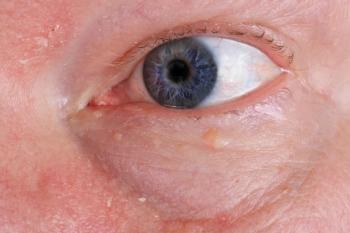
Nutritional one-two punch may slow retinitis pigmentosa
A recent analysis of three clinical trials has provided further evidence that a supplement of pure vitamin A combined with an omega-3 rich fatty acid diet can slow vision loss in adults with the common forms of retinitis pigmentosa.
"It does not prevent, cure, or reverse the disease," cautioned Jeff Anshel, OD, FAAO, president of the Ocular Nutrition Society. "It just slows the progression." But with a disease that has no other effective treatments, the positive study data can be seen as a glass half full. "Anything that keeps people with their vision longer is a good thing," he said.
Eliot Berson, MD, and colleagues of Harvard Medical School and the Massachusetts Eye and Ear Infirmary reported that RP patients who take a high dose of vitamin A pal-mitate and consume a diet rich in omega-3 lost an average of 0.59 letters of visual acuity per year. Those taking similar amounts of vitamin A palmitate but consuming lower amounts of omega-3s lost an average of 1.0 letter per year, as measured by Early Treatment or Diabetic Retinopathy Study (EDTRS) distance acuity. The paper was published in the February issue of Archives of Ophthalmology. [Arch Ophthalmol. Published online 13 Feb 2012)
He also noted that the analysis found only vitamin A palmitate, not other forms vitamin A, was effective in postponing vision loss in RP. "Beta-carotene or carrots are not a suitable substitute for vitamin A palmitate in the context of this treatment," Dr. Berson said.
Analyzing data from a total of 357 patients from three clinical trials, each lasting between 4 and 6 years, Dr. Berson and colleagues found that daily doses of 15,000 IU of oral vitamin A palmitate in combination with eating at least 0.2 gram of omega-3 fatty acids daily-the equivalent of one to two 3-ounce servings of oily fish per week-slowed the rate of decline in retinal function.
Newsletter
Want more insights like this? Subscribe to Optometry Times and get clinical pearls and practice tips delivered straight to your inbox.













































